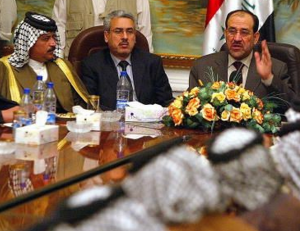By Jay R.
Iraq has no doubt been plagued by security deficiencies throughout the last nine years of war, which have been capitalized on by both Sunni insurgents and Shiite militias alike. The attacks carried out by both parties have been frequently reported on in the media, making any Westerner think twice before visiting the country. Indeed, Iraq remains one of the world’s most dangerous travel destinations. But what needs special attention is that Iraq has the potential to be a stabilizing force in the Middle East amidst the many nations in its periphery that are attempting to rebuild themselves after popular revolution, or are still yet to go through the process.

Iraq is clearly going through some ‘growing pains’. It has a relatively weak central government which struggles to maintain a unified country with Kurdish, Sunni and Shiite provinces all desiring autonomous status. However, the central government has been claiming its power of late by arresting and expelling destabilizing elements that have alleged loyalties to the former Saddam-regime. It is going further by imposing restrictions on international companies who choose to ink deals with provincial governorates as opposed to Baghdad, thereby asserting itself as the nation’s sole dealer of oil and infrastructure contracts.
Oil and infrastructure; what will likely propel Iraqi GDP into double digits for consecutive years. These two elements are being seized quickly by a plethora of corporate entities looking to stake their claims on the emerging Iraqi economy. Iraq has the potential to take over Iran as the world’s second largest oil producer after Saudi Arabia. This small fact alone will almost guarantee the heavy influx of investments into Iraq in order to support the reconstruction of its oil industry.
The everyday Iraqi is frustrated with the government’s pace in rebuilding infrastructure. Protests to this regard occur almost on a daily basis. However, what do not seem to be appearing in these demonstrations are calls for the overthrowing of government. Iraq, when compared to its neighbors, is seasoned when it comes to holding free elections and its populace knows it. Iraqis by and large are a very proud people, with a proud history and may put aside their sectarian differences and work to solidify the position they believe Iraq can achieve. Continue reading Suicide Terrorism and Regional Autonomy: The Next Status Quo of Stability?